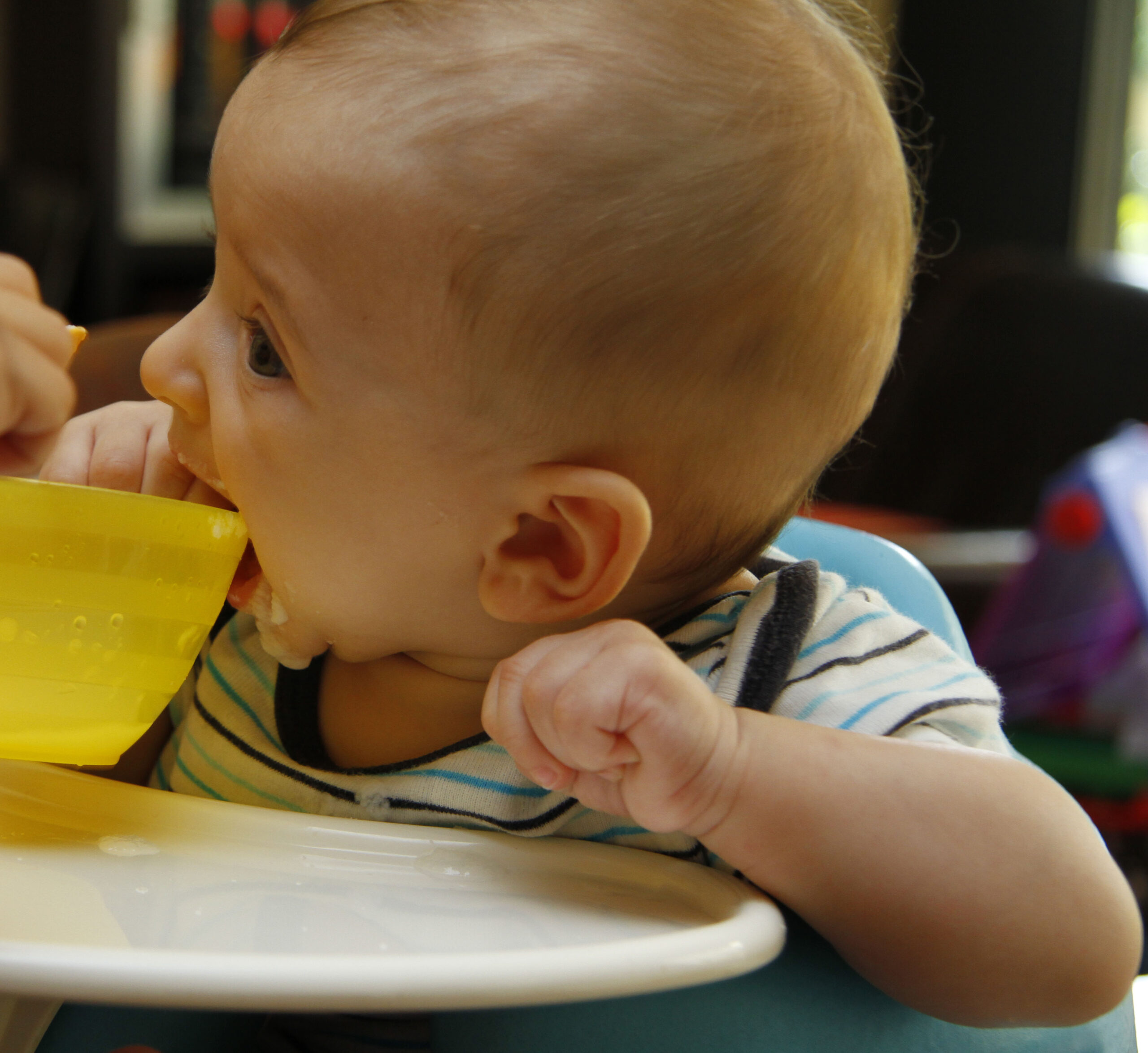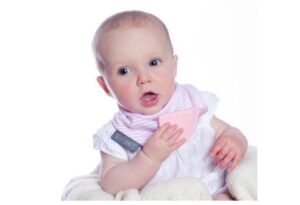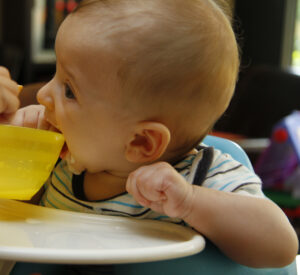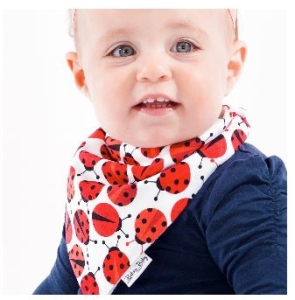
The official definition of drooling/dribbling is the unintentional loss of saliva from the mouth. Drooling normally starts around 18-24 months of age. But parents will often report an increase in drooling when their child starts to teethe.
For most ‘typically’ developing children, their drooling will peak anywhere from 9months – 18 months of age and then start to improve however for children with special needs such as Cerebral palsy, Down syndrome and other neurological disabilities, ongoing and severe drooling can be as high as 37%.
Drooling affects so many parameters for the child and their family including causing significant skin irritation, frequent change of bibs and time off work/stress for families as they run from appointment to appointment trying to work out the best cause of action. Drooling can at times in older children become quite smelly which may make the child feel embarrassed and withdraw socially, for me, I think this is the hardest part of long term drooling.
This “nerckerchew” is both a teether and a bib in one. Available from www.eatteethsleep.com.au
But saliva is important! It helps you to chew your food, maximises taste in your food, helps keep your mouth moist so you can talk, and the bacteria in saliva is valuable in keeping your teeth clean.
So when is it considered abnormal? According to the Royal Children’s Hospital in Melbourne, drooling beyond the age of 4 years old is considered abnormal. However they do concede that in a small group of children, drooling can occur up to the age of 6.
So what causes it? Contrary to thought, it’s not an over production of saliva but rather the child does not swallow often enough. Often children who drool will keep their mouths open (and tongue forward) which can make it worse. In children with special needs, they may also have low motor tone and sensory input which means that they often don’t feel the saliva come out of their mouth ro can’t keep their mouth closed. Furthermore, putting your fingers or toys in your mouth to chew on can also stimulate the salivary glands which produces more saliva!
How can it be managed?
- Speech Therapy: using oral motor and behavioural strategies: I am pretty clear here with my patients, in order for this to succeed; you need to consistently do therapy every day and attend regular appointments. Whilst this first line of treatment is the least invasive, it’s like any speech therapy – the more consistently you do it, the better outcomes you will have. It is not a quick fix. But it is so rewarding to see a child work out how to stop drooling – it’s my favourite part!!
- Dental appliances – I will often work jointly with a Paediatric Special Needs Dentist using this technique as it helps increase oral awareness and motor control.
- Medication: there are a number of different medication options including Artane/Benzhexol hydrochloride and the currently popular glycopyrrolate/patches that dry the saliva in your child’s mouth (therefore they drool less)… But remember any medication needs to be reviewed with a paediatrician or paediatric rehabilitation specialist who can discuss the side effects with you and your child. Think about it – drying up secretions in your child’s mouth also includes their body so it can dry their eyes, skin etc as well as possibly increase the risk of constipation particularly if they are already on other medication.
- Surgery and botox is often considered as the last line of treatment not only because it is the most invasive and the side effects can often be more long term but also because medical professionals will often have differing opinions in the long term success of these approaches. If you get to this stage, you will hopefully have a fantastic managing paediatrician who can help guide you with the options for your child.
What can I do in the meantime?
- There are a lot of colourful and child friendly absorbent and waterproof bibs on the market which you can use with your child that means you don’t have to keep changing their clothes. A handy tip is that patterned bibs often hide the dribble more than plain bibs.
- Saliva is important in keeping your child’s teeth healthy so speak with your dentist about how you can ensure the best dental hygiene for your child’s teeth. The dentist that I work with has wonderful tips and tricks to help reduce the smell especially with children who hate teeth brushing.
Cute bibs from: http://bubsybaby.com.au/product/ladybug-dribble-bib/
When to seek more help?
If you are still concerned about your child’s drooling, then speak with a Speech Pathologist (like us at Let’s Eat! Paediatric Speech Pathology) who can assess and work collaboratively with your Dentist, Doctor and Occupational therapist to determine the underlying cause (often it’s not just an open mouth posture that is the cause but more medical or dental issues that are contributing).
Then your Speech Pathologist can determine if oral motor is the best treatment plan. Therapy will be working jointly with you and your child to increase your child’s awareness around the drooling as well as teaching your child long term oral motor exercises to develop the strength in their tongue and lips which will all help decrease the drooling.
At the end of the day, it’s a team focused assessment and treatment program because long term drooling is not that straight forward and simple. And that is the exact reason I love it – it makes you think outside the box and work closely with your colleagues to find the best treatment plan for your patient. If you would like more information about an appointment to assist with your child’s drooling, please do not hesitate to email me on Valerie.gent@letseatspeech.com.au or head to my website on www.letseatspeech.com.au
Until next time!
Val
About the author of this blog post
Valerie is an Australian based Speech Pathologist with 13 years experience in Paediatric Feeding. She has opened a private practice in 2013 called ‘Let’s Eat! Paediatric Speech Pathology’ that caters for Newcastle based babies and children with feeding difficulties. Valerie is passionate about working in the area of paediatric feeding and special needs and has been involved in the teaching and training of Australian Speech Pathology University students and allied health professionals. You can find out more about Valerie Gent and ‘Let’s Eat! Paediatric Speech Pathology’ via her website www.letseatspeech.com.au and Facebook page www.facebook.com/LetsEatPaediatric SpeechPathology or email her on valerie.gent@letseatspeech.com.au



